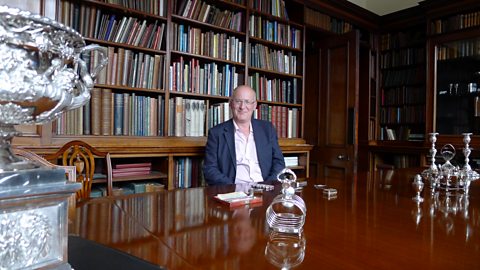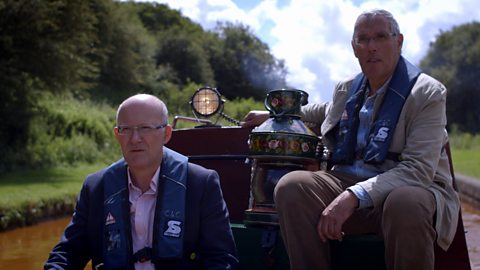Video summary
The Industrial Revolution changed Britain and the world fundamentally. It began in Britain, and in this short film Professor Jeremy Black asks why this happened.
Coal was a key factor.
Britain was well supplied with coal and this wonder fuel was powerful and much cheaper than wood.
Demand for coal led to expansion of mining, but as they mined deeper they encountered the problem of flooding.
The profit motive led to furious activity to solve this problem.
Thomas Newcomen helped to resolve this. He invented a pump which harnessed steam power to pump water out of mines.
Further developments included James Wattβs engine which improved on Newcomenβs pump.
A key factor, along with the profit motive, in all this change was the intellectual climate of the time in which scientists were examining the world around them and trying to explain what they saw and harness it for business purposes.
This short film is from the ΒιΆΉΤΌΕΔ series, Why the Industrial Revolution Happened Here.
Teacher Notes
Ask students to draw a Venn diagram with circles labelled: coal; steam power; profit motive.
In pairs or small groups ask them to draw the diagram so that the size of each circle represents the importance of each factor and also to use overlaps between the circles to show how different factors (e.g. coal and steam) were interlinked.
These overlapping areas can be labelled with notes explaining how the factors were connected.
This short film is suitable for teaching history at Key Stage 3 and GCSE, Third Level and National 4 & 5, in particular units on the Victorians and the Industrial Revolution.
Josiah Wedgwood: Genius of the Industrial Revolution. video
Professor Jeremy Black explores Josiah Wedgwood's innovative ways of marketing and advertising his pottery, including opening the first ever showroom.

The brains behind the Industrial Revolution. video
Professor Jeremy Black shows how, at the birth of the Industrial Revolution, Britain's political and economic climate allowed inventive minds to blossom.

The growth of industry and factory towns in Britain. video
Professor Jeremy Black explains how the invention of factories completely changed the nature of work and made Birmingham one of Britain's largest cities.

The transport revolution: Britain's canal network. video
Canals were the motorways of the 1700s, says Professor Jeremy Black. Building them took huge amounts of money and some incredible feats of engineering.

Why did Britain need a better road network? video
Professor Jeremy Black explains how the state of Britain's roads in the early 1700s was holding back the Industrial Revolution, and how business owners changed all that.
